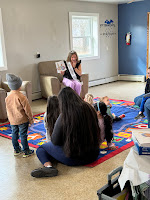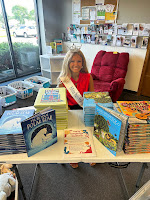By Samantha Williams
When I walked into my very first chemistry class, the first thing I noticed was a photo of 29 scientists sitting together outside the Solvay Conference of 1927. I knew I wanted to be like the only woman in the photo, sitting just one person away from Albert Einstein, as his equal. She was not in the background of the photo, she was not smiling, and she most definitely did not look timid. She looked powerful, educated, and like she wouldn’t let anyone get in the way of her making incredible scientific discoveries. I instantly knew I wanted to be just like Marie Curie.
During my senior year of high school, I had the unique experience of interning as a student teacher for an 11th grade physics class and a 10th grade chemistry class. I absolutely loved my job, teaching students about subjects I was passionate about was so fun to me. But there was one thing I hated. Every time I placed a paper on a student’s desk, they would immediately look at it and say, “This is too hard. I can’t do this.” They wouldn’t even read the problem before giving up. It broke my heart. I hated seeing students discouraged by the stigma that STEM is impossible to understand.
I haven’t always had confidence in my STEM abilities. I remember staring at a chemistry exam in 11th grade, feeling completely lost and on the verge of tears. I had studied for two weeks, but still couldn’t answer the questions. But instead of giving up, I found ways to learn differently, using YouTube videos, making diagrams, and most importantly, asking questions. STEM isn’t meant to be understood by yourself. You won’t understand everything, and that’s okay. There will always be someone else out there who can help, so ask them! Work together to improve both of your understandings. That mindset is what I now teach others through STEM Buds.
I began STEM Buds as a mentorship program to help students develop study skills while enhancing their knowledge and understanding of STEM subjects. STEM Buds is founded on the idea that anyone can succeed in science, technology, engineering, and mathematics. Like flowers, knowledge must be nurtured. With the right environment and care, anyone’s love of STEM can blossom. Through sharing monthly DIY lab demos, STEM careers, and a STEM Hall of Fame on my Instagram and Facebook @miss.sam.williams, I hope to show people that STEM is not scary. My goal is to prove the people who say STEM is “too hard” for them, wrong.
While sharing STEM Buds online has allowed me to reach so many people virtually, I know the real magic happens in classrooms—where students can ask questions, try experiments, and learn together in real time. That’s why I’m currently working on bringing STEM Buds into schools across Connecticut, creating spaces where students feel supported, curious, and confident in their ability to succeed in STEM.
Just like Marie Curie defied expectations and shattered barriers in science, I want every student to know that they belong in the room, not behind the scenes, but at the table, in the photo, making history. And if I can help even one student feel like they deserve to take up that space, then I’ve done what I came here to do.
----
Samantha Williams is a STEM advocate studying chemical engineering at the University of Connecticut in the Honors program. She enjoys participating in nanoparticle research, volunteering with campus police, and playing the flute. As a physics student teacher, she noticed that students were intimidated by STEM subjects. Inspired by her desire to help her students develop confidence in understanding STEM subjects, she founded STEM Buds, an organization dedicated to enhancing the next generation’s knowledge and study skills in STEM. This is her first Section 36 Forevers guest blog.
STEM Buds is founded on the idea that anyone can succeed in science, technology, engineering, and mathematics. Like flowers, knowledge must be nurtured. With the right environment and care, anyone’s love of STEM can blossom. STEM Buds, created by Samantha Williams is a mentorship program helping students develop study skills while enhancing their knowledge and understanding of STEM subjects.






















